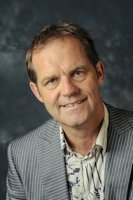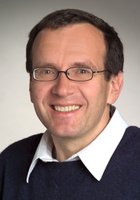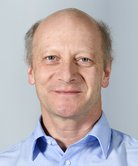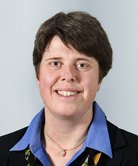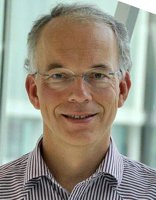The Max Planck Center encompasses the following research teams:
BIOS LAB ON A CHIP - UNIVERSITY OF TWENTE
| Albert van den BergAlbert van den Berg received MSc in applied physics in 1983, and his PhD in 1988 both at the University of Twente, the Netherlands. From 1993 until 1999 he was research director Micro Total Analysis Systems (μTAS) at MESA, University of Twente. In 1998 he was appointed as part-time professor “Biochemical Analysis Systems”, and later in 2000 as full professor on Miniaturized Systems for (Bio)Chemical Analysis in the faculty of Electrical Engineering. In 2002 he received the Simon Stevin Master award from the Dutch Technical Science foundation (STW). In 2009 he received the Spinoza prize, the most prestigious dutch scientific award, for his achievements in lab-on-a-chip research. In 2010 he was appointed as honorary University Professor at the University of Twente. His current research interests focus on microanalysis systems and nanosensors, nanofluidics and single cells and tissues on chips, especially with applications in personalized health care and development of sustainable (nano)technologies. |
LABORATORY FOR FLUID DYNAMICS, PATTERN FORMATION AND BIOCOMPLEXITY - MAX PLANCK INSTITUTE FOR DYNAMICS AND SELF-ORGANIZATION GÖTTINGEN
| Eberhard BodenschatzBorn on April 22, 1959 in Rehau. He received his doctorate in theoretical physics from the University of Bayreuth in 1989. In 1991, during his postdoctoral research at the University of California at Santa Barbara, he received a faculty position in experimental physics at Cornell University. From 1992 until 2005, during his tenure at Cornell he was a visiting professor at the University of California at San Diego (1999-2000). In 2003 he became Director and Scientific Member at the Max Planck Institute for Dynamics and Self-Organization. He continues to have close ties to Cornell University, where he is Adjunct Professor of Physics and of Mechanical and Aerospace Engineering (since 2005). |
PHYSICS AT INTERFACES- MAX PLANCK INSTITUTE FOR POLYMER RESEARCH - MAINZ
| Hans-Jürgen ButtHans-Jürgen Butt graduated in Ernst Bamberg's group at Max Planck Institute for Biophysics in Frankfurt. He defended his thesis about light induced proton transport of bacteriorhodopsin in 1989. In 1996 he went to the institute for physical chemistry at the Johannes Gutenberg-University in Mainz as a Associate Professor. In 2000 he joined the University of Siegen as a Full Professor for physical chemistry. In 2002 he received a call from the Max Planck Institute for Polymer Research. Since then he leads the group for Experimental Physics of Interfaces as a director. The group does fundamental research on the structure and dynamics of soft matter interfaces. The aim is to describe processes at interfaces quantitatively. |
DYNAMICS OF COMPLEX FLUIDS - MAX PLANCK FOR DYNAMICS AND SELF-ORGANIZATION GÖTTINGEN
| Stephan HerminghausStephan Herminghaus is a German physicist. He received a PhD in Physics from the University of Mainz in 1989. His postdoctoral stay was at the IBM Research Center in San Jose, California (USA), in 1990 . He completed his habilitation at the University of Konstanz in 1994 and was the head of an independent research group at the MPI for Colloids and Interfaces, Berlin, from 1996 until 1999. He then became a full professor at the University of Ulm from 1999 until 2003. Since 2003, he has been a director at the Max Planck Institute for Dynamics and Self-Organization, Göttingen. Since 2005, he has an additional appointment as an adjunct professor at the University of Göttingen. Further, he was appointed as Professeur Invité at Université Paris VI for the winter term 2006/7. |
PHYSICAL CHEMISTRY OF POLYMERS - MAX PLANCK INSTITUTE FOR POLYMER RESEARCH - MAINZ
| Katharina Landfester studied chemistry at the Technical University of Darmstadt. For her diploma thesis, she was at the Ecole d’Application des Hauts Polymères in Strasbourg (Prof. M. Lambla). In 1995, she received her doctoral degree in physical chemistry from the Johannes Gutenberg University of Mainz after working with Prof. H.W. Spiess at the Max Planck Institute for Polymer Research on the synthesis and characterization of core-shell latexes by transmission electron microscopy and solid state NMR. After spending another year as a group leader at the institute, she moved for a postdoctoral stay at the Lehigh University (Prof. M. El-Aasser) where she first came in contact with the miniemulsion technique. She returned to Germany in 1998 joining the group of Prof. M. Antonietti at the Max Planck Institute of Colloids and Interfaces in Golm. There, she led the miniemulsion group working on new possibilities in the synthesis of complex nanoparticles. In 2002, she got her habilitation in physical chemistry at the University of Potsdam. |
PHYSICS OF FLUIDS - UNIVERSITY OF TWENTE - ENSCHEDE
| Detlef LohseLohse graduated from the University of Bonn in 1989 with a degree in Physics, and completed his PhD at the University of Marburg in 1992. He served as a postdoctoral research fellow at the University of Chicago from 1993 to 1995, and was finally made chair of Physics of Fluids at the University of Twente in 1998. |

